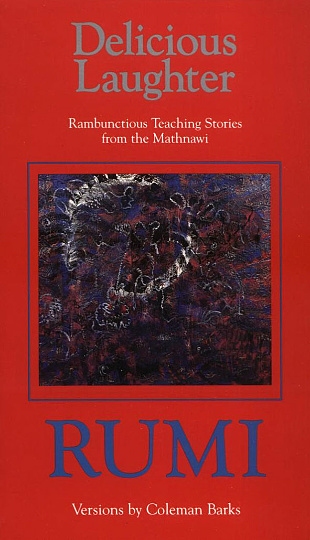The Mathnawi of Jelaluddin Rumi is one of the greatest spiritual masterpieces of all time. Written in couplets, it is similar to other traditional Middle Eastern compendiums of wisdom, but this one is six volumes long and was recited by Rumi to a companion in the thirteenth century. It was translated into English by Reynold Nicholson, who to spare contemporary audiences some of the text's bawdiness, kept portions in Latin! Now Coleman Barks has produced his own version of these comic, outrageous, and sometimes shocking stories.
Barks reminds us that the stories are metaphors, not accounts of actual people. "The characters here represent impulses within people, which can act and change, for the better or the worse. Rumi's world is a tangle of creatures, all in their guided and misguided ways, participating in a Cosmic Play, which can be called the gradual Union of the personal with God, or soul-growth, or evolving consciousness."
Here are stories about a man with a jealous wife, the servant who is in love with the King's daughter, Muhammed and the huge eater, the chick pea and the cook, and more. In one tale, Jahan is known for being very generous to beggars, but only if they do not ask for alms out loud. One day a law student gets his attention by whining, and Jahan refuses him. The law student tries many disguises after that but Jahan always recognizes him. Finally, the student goes to a shroud-maker, has himself wrapped in cloth and laid by the side of the road. Jahan comes by and tosses some coins to the dead man, who grabs the coins and proudly announces that he had found himself back to the great man's generosity. "Yes," replies Jahan, "but you had to die to do it." This short story captures the mystery of the Sufi's quest to "die before you die."
